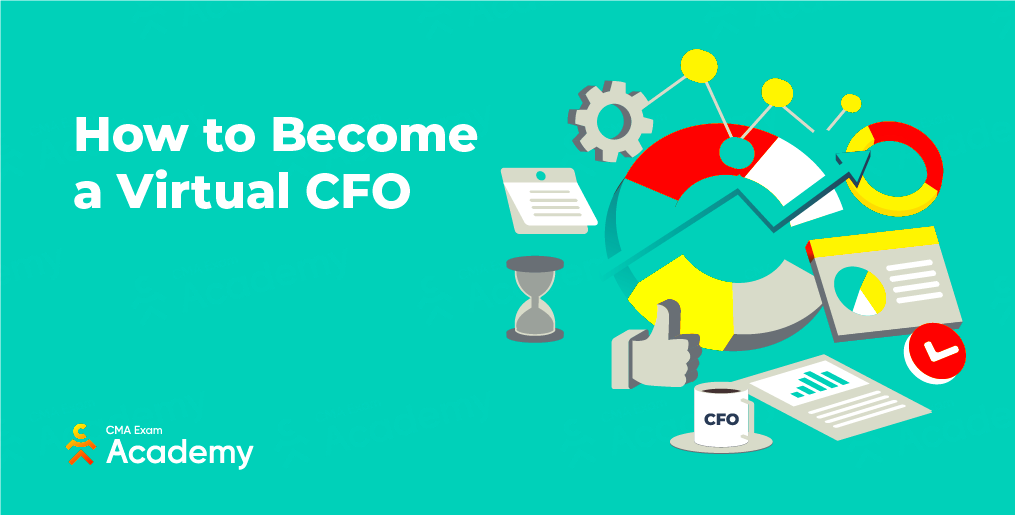A Freelance Virtual CFO, or Chief Financial Officer, plays a crucial role in managing the financial health of businesses without being a full-time employee. They provide strategic financial guidance, oversee budgeting, and help with financial planning and analysis. By working remotely, they offer flexibility to small and medium-sized businesses that may not have the resources for a full-time CFO.
In this role, you will:
- Analyze financial data to identify trends and opportunities.
- Prepare financial reports for stakeholders.
- Advise on investment strategies and funding options.
- Implement financial controls and risk management procedures.
- Assist in tax planning and compliance.
Ultimately, a Freelance Virtual CFO helps businesses grow by ensuring they are financially sound and making informed decisions based on data.
Essential Skills for a Freelance Virtual CFO

To thrive as a Freelance Virtual CFO, you need a mix of technical and interpersonal skills. Here are some essential skills that will help you succeed:
- Financial Analysis: Ability to interpret financial data and make informed decisions.
- Strategic Thinking: Crafting financial strategies that align with business goals.
- Communication: Clearly conveying complex financial concepts to non-financial stakeholders.
- Problem-Solving: Identifying financial challenges and proposing effective solutions.
- Adaptability: Adjusting to various business environments and needs.
Additionally, familiarity with accounting software and tools is crucial. Keeping up with industry trends and regulations is also important for providing relevant advice.
Also Read This: What is Fiverr Select?
Building Your Network as a Virtual CFO

Networking is vital for any freelancer, especially for a Virtual CFO. A strong network can lead to referrals, partnerships, and opportunities. Here are some tips for building your network:
- Attend Industry Events: Join conferences and workshops related to finance and entrepreneurship.
- Utilize Social Media: Engage with professionals on platforms like LinkedIn. Share insights and connect with potential clients.
- Join Professional Associations: Become a member of finance-related organizations to meet like-minded individuals.
- Offer Free Workshops: Share your expertise through workshops to showcase your skills and attract clients.
- Follow Up: Always keep in touch with your contacts. Send emails or connect on social media to maintain relationships.
Building a network takes time and effort, but it pays off in the long run by providing support and new opportunities as you grow your freelance business.
Also Read This: Costs for Card Authentication on Freelancer
Setting Your Rates as a Freelance Virtual CFO
Setting your rates as a Freelance Virtual CFO can be challenging. You want to ensure you're compensated fairly for your expertise while also attracting clients. To start, consider your experience level, the complexity of the services you provide, and the value you bring to your clients.
Here are some factors to help you determine your rates:
- Experience: If you have extensive experience and a strong track record, you can charge higher rates.
- Service Offerings: Consider what services you provide, such as budgeting, forecasting, or strategic planning. More specialized services may command higher fees.
- Market Rates: Research what other Virtual CFOs in your area or niche are charging. This helps you remain competitive.
- Client Budget: Understand the financial capabilities of your target clients. Tailor your rates accordingly while ensuring you still meet your income needs.
- Project vs. Hourly Rates: Decide whether to charge by the hour or by project. Each has its pros and cons, depending on the scope of work.
As you gain more clients and experience, consider adjusting your rates. Regularly reviewing and updating your pricing strategy helps ensure you remain competitive while being fairly compensated for your work.
Also Read This: How to Remove PayPal from Fiverr
Marketing Yourself as a Virtual CFO
Marketing yourself effectively as a Virtual CFO is key to attracting clients. You need to showcase your skills, build your brand, and reach potential clients. Here are some strategies to help you market yourself:
- Create a Professional Website: Your website should highlight your services, experience, and testimonials. Make it easy for potential clients to understand what you offer.
- Leverage Social Media: Use platforms like LinkedIn to share valuable content related to finance and your expertise. Engage with your audience and connect with industry professionals.
- Networking: Attend industry events and connect with other professionals. Word of mouth can be powerful in gaining new clients.
- Offer Free Resources: Consider creating guides, webinars, or articles that provide value. This not only showcases your expertise but also attracts potential clients.
- Ask for Referrals: Don’t hesitate to ask satisfied clients for referrals. Happy clients are often willing to recommend you to others.
By combining these strategies, you can effectively market yourself as a knowledgeable and approachable Virtual CFO.
Also Read This: Top List of Fiverr Jobs for Students Without Investment
Tools and Resources for Virtual CFOs
As a Freelance Virtual CFO, having the right tools and resources is essential for delivering quality services. The right software can streamline your processes and enhance your efficiency. Here are some tools you should consider:
- Accounting Software: Programs like QuickBooks or Xero help you manage finances, generate reports, and track expenses.
- Financial Analysis Tools: Tools like Tableau or Microsoft Excel are great for analyzing data and creating visual reports.
- Project Management Tools: Use tools like Asana or Trello to keep track of tasks and deadlines with your clients.
- Communication Platforms: Slack or Zoom are essential for staying connected with clients and team members, especially in a remote environment.
- Educational Resources: Websites like Coursera or LinkedIn Learning offer courses on finance and business management to help you continue developing your skills.
Investing in these tools and resources will help you work more efficiently and provide better service to your clients, ultimately enhancing your reputation as a competent Virtual CFO.
Also Read This: Where is Fiverr Office Located?
Common Challenges for Freelance Virtual CFOs
Being a Freelance Virtual CFO comes with its unique set of challenges. While the role can be rewarding, you will likely face some hurdles along the way. Understanding these challenges can help you prepare and adapt more effectively.
Here are some common challenges Freelance Virtual CFOs encounter:
- Client Acquisition: Finding and attracting clients can be tough. It takes time to build a reputation and network.
- Managing Multiple Clients: Balancing the needs and expectations of various clients simultaneously can be overwhelming.
- Time Management: Working on different projects often leads to juggling deadlines and prioritizing tasks, which can be stressful.
- Staying Updated: The finance industry evolves rapidly. Keeping up with changes in regulations and best practices is essential but can be challenging.
- Isolation: Freelancing can be lonely. You may miss the camaraderie and support of a traditional office environment.
By acknowledging these challenges, you can develop strategies to overcome them. Building a strong support network and investing in ongoing education can significantly help in navigating your freelance journey.
Also Read This: Does Fiverr Cost Money? Understanding Fiverr’s Pricing Structure
FAQ about Becoming a Freelance Virtual CFO
If you are considering becoming a Freelance Virtual CFO, you probably have some questions. Here are some frequently asked questions that can provide clarity:
- What qualifications do I need? While a degree in finance or accounting is beneficial, practical experience and relevant certifications, such as CPA or CFA, can also enhance your credibility.
- How do I find clients? Networking, attending industry events, and using social media platforms like LinkedIn are great ways to connect with potential clients.
- Can I work remotely? Yes, most Freelance Virtual CFOs work remotely, which provides flexibility and convenience.
- What services should I offer? Services can include financial planning, budgeting, cash flow management, and strategic advice tailored to your clients' needs.
- How much should I charge? Your rates depend on your experience, service offerings, and market demand. Research what others charge to help set your rates.
These FAQs can guide you as you start your journey as a Freelance Virtual CFO, providing insight into what to expect.
Conclusion on Your Journey as a Freelance Virtual CFO
Embarking on a career as a Freelance Virtual CFO can be both exciting and challenging. With the right skills, tools, and mindset, you can successfully navigate this path and create a fulfilling career. Remember that continuous learning and networking are key components to your success.
As you grow, focus on building strong relationships with your clients and understanding their unique needs. This approach will help you provide valuable insights and solutions that can significantly impact their businesses.
Don't forget to reflect on your journey and celebrate your successes, no matter how small. Every step you take brings you closer to becoming a sought-after Virtual CFO. Embrace the challenges, stay adaptable, and keep pushing forward. Your efforts will pay off in the long run.




